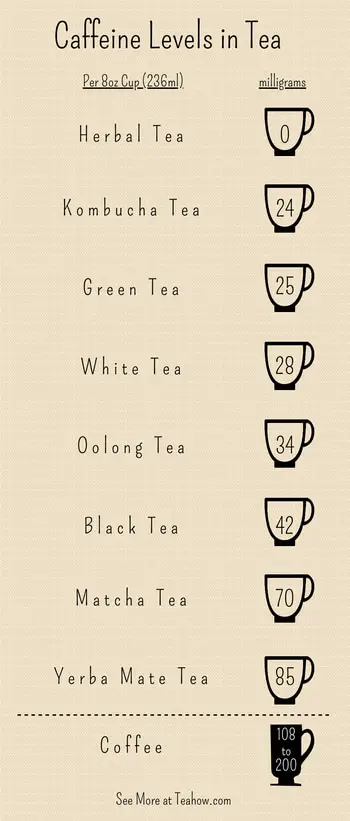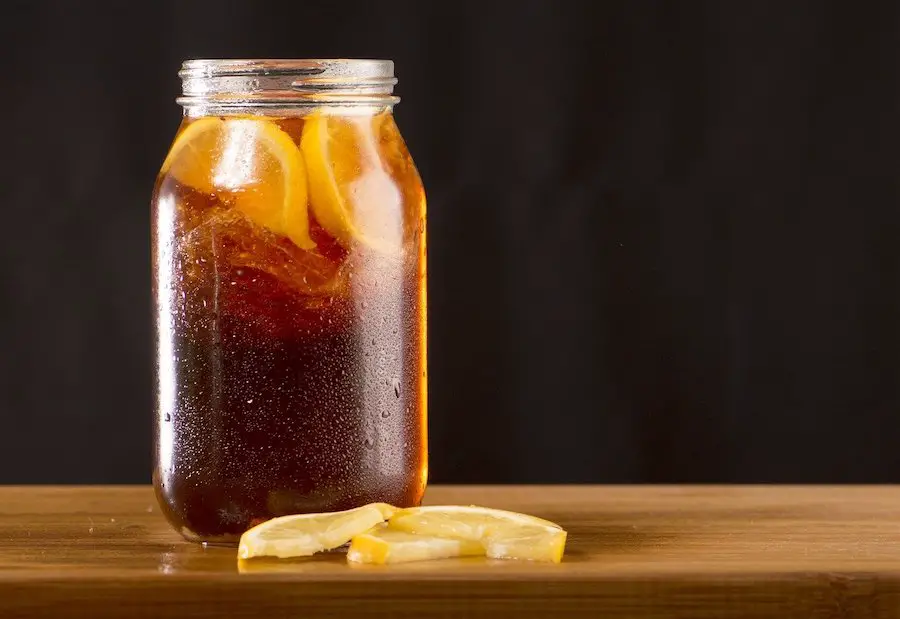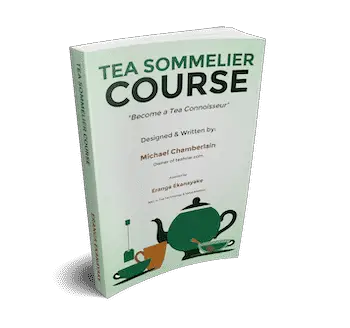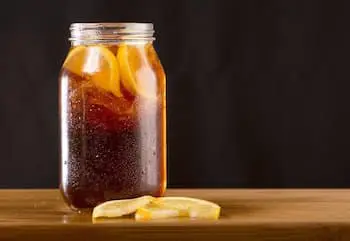Tea brings so many benefits, but one area that may appear to be a negative aspect is if tea is a diuretic. There is a widely held belief that it is, but this is being challenged with the latest studies. So how does that impact iced tea? Is iced tea a diuretic too?
In this article, I’m going into detail about Iced tea and it’s potential to be a diuretic. Starting with a an simple summary…
Classic iced tea made using black tea, and sugar is as diuretic as straight black tea. Any sugar used in black tea adds extra diuretic components. However, the caffeine is largely canceled out by the volume of water consumed. Opting for herbal teas, and less sugar can reduce diuretic effects.
Here there are conflicting views and modern studies, which I’ll fall back on to show the best definitive answer I can.
So let’s get into the details to fully answer the question – is iced tea a diuretic…
Iced tea and its diuretic properties
Diuretic, in simple terms, is an effect that makes you urinate more – strangely, due to dehydration.
In general, the truest tea – leaving aside the iced part – is known to be a natural diuretic. This alone makes iced “Tea” a diuretic. But note, I am referring only to the classic version of iced tea in this article – that being black iced tea.
In modern times there’s such an ample selection of tea varieties that you’ll be spoilt for choice. This means the term “iced tea” now includes a broad spectrum of varieties that refers to “any” tea that is served cold or cold-brewed.
And these days you can even get herbal iced teas.
So if you’re referring to this form of “herbal iced tea, herbal teas are only an infusion of a plant compound (unless actual true tea is added).
These herbal infusions most often are not diuretic …since they don’t have caffeine.
In contrast, if you’re referring to iced tea made from true tea varieties such as the classic black, green or white tea, then they are diuretic. But, some of the latest studies and conclusions add contrast to this view – which we’ll explore shortly.
Caffeine is a well-known diuretic compound
Any type of tea made from the true tea plant “Camellia Sinensis” contains caffeine. The more caffeine in the type of tea, the higher the diuretic effects. However, the diuretic effect of caffeine is counteracted by other properties.
A classic version of iced tea is made using black tea. Black tea contains the highest caffeine content when compared to other true tea types.

Below is a breakdown of caffeine in the main tea varieties
Herbal tea 0 mg per cup (8 oz)
Kombucha 24 mg per cup (8 oz)
Green tea 25 mg per cup (8 oz)
White tea 28 mg per cup (8 oz)
Oolong tea 25 mg per cup (8 oz)
Black tea 42 mg per cup (8 oz)
Matcha tea 70 mg per cup (8 oz)
Yerba mate 85 mg per cup (8 oz)
Coffee 108 – 200 mg per cup (8 oz)(for comparison)
So, depending on what iced tea you take, the diuretic effects may vary.
The golden rule is that iced tea made from any true tea variety will contain caffeine – caffeine is a well-known diuretic, so your iced tea will be a diuretic drink. But rules are made to be broken, and in this case, the property that counteracts the diuretic effect is the water content.
Water cancels out the diuretic effect
In contrast to the view that caffeine is a diuretic (which it is), we have to remember that iced tea – like any tea or indeed coffee, contains a large volume of water vs the volume of caffeine.
Results from studies have shown that in fact the diuretic properties of caffeine are effectively canceled out by the inclusion and intake of large amounts of water along with the caffeine.
So while you may still experience diuretic effects, your body is provided sufficient water content at the same time to deal with this circumstance.
This brings us nicely to potentially the main villain making iced tea a diuretic…
Sugar in iced tea increases the diuretic effects
For those who might be unaware, sugary drinks are also known to have diuretic properties.
This is because your body will require greater amounts of water to process sugars which forces your system to pull water from other places in your body in order to break down the sugar.
After processing, to expel all this sugar content, your kidneys are then forced to make more urine to flush the sugar out.
As a result, you will urinate more and dehydrate sooner when you consume more sugar because of its diuretic properties. Potentially more than the water you’re also taking on board.
It’s about having a balance of sufficient fluid to counteract the diuretic effect.
Iced tea is usually served with sugar
Classically made iced tea is served with sugar – often quite a lot of sugar. So much so, that iced tea is also called sweet tea for this very reason.
So if you’re having this classic version of iced tea, it will likely have more diuretic effects which compound any potential diuretic effect from the caffeine.
How to reduce the diuretic effects of iced tea
If you’re conscious about reducing the diuretic effects of iced tea, consider the following:
- Add less tea – This will reduce the caffeine that comes along with tea further and thereby reduce the diuretic effects.
- Steep for a shorter period – This will avoid a high content of tea and related caffeine properties from steeping in your tea.
- Add less sugar – Adding less sugar can reduce the diuretic effects that come with sugar.
- Add lemon juice – Some prefer adding lemon juice and/or other citrus juices to iced tea. However, it’s best to avoid these as citrus juices are also diuretic and may increase the diuretic effects of your iced tea.

Bottled iced tea is heavily diuretic
Bottled-iced tea has become the new and convenient way to take your chilled tea. So much so now, that many believe iced tea can only be in the form of a bottled-drink.
This has even made brewing iced-tea more of a rare occasion in some places. But bottled iced tea has its place, in a world where we rush from place to place, a handy beverage “to-go” like iced tea is a helpful way to still get your favorite drink.
However bottled-iced tea can be more diuretic than a classic iced tea brewed at home “With sugar”.
Bottled iced tea has a high sugar load that not only adds up to extra calories but compounds the diuretic properties too.
On average most brands of bottled-iced tea contain nearly 60 grams of sugar per 20-ounce bottle.
This is equivalent to 15 sugar cubes for every 20 ounces of iced tea and adds up to 240 calories.
Regardless of the caffeine content (which is negated by the water anyway), the sugar content from bottle-iced tea alone makes it heavily diuretic.
What do the iced tea diuretic properties mean for you?
Actually, it might not amount to much…
I’ve been through a period of drinking lots of cups of tea per day. Lots of black tea. And I have to say I barely noticed the difference.
For me, it’s always felt as though I was actually drinking lots of “flavored water”. Plus I think habit enables your body to adapt and build up a tolerance to any diuretic nature of tea – even with sugar added.
Sugar is, however, increasingly being seen as the demon addition to any or at least most beverages. So my advice is to keep drinking Iced tea, but make it yourself and limit the sugar quantities!
Want more tea?
If you’re becoming an avid tea drinker, then you would love my Tea Sommelier Course. It’s a quick way to learn about tea tasting, and more …without sitting long and expensive exams.
Impress your friends and family by becoming the tea connoisseur in your family or circle of friends.

Take the fast track and become a tea connoisseur
Whether for enjoyment or considering a career as a tea sommelier. This course has everything you need to enhance your tea knowledge and tea-tasting skills.
This course keeps it simple with step-by-step tea tasting and easy reference guides
For pleasure, or as a precursor to a career in the tea industry. Find out what tea sommelier actually does, their career paths, and what they earn.

Find out more about the Teahow Tea Sommelier Course!
Find out more about the Teahow Tea Sommelier Course!
